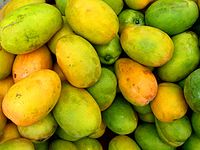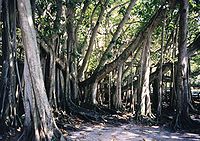ഇന്ത്യയുടെ ദേശീയപ്രതീകങ്ങൾ
| ദേശീയപ്രതീകങ്ങൾ | പ്രതീകം | ചിത്രം | കുറിപ്പ് |
|---|---|---|---|
| ദേശീയപതാക | ഇന്ത്യയുടെ ദേശീയപതാക | 
|
ഈ പതാകയിൽ തിരശ്ചീനമായി മുകളിൽ കേസരി (കടും കാവി), നടുക്ക് വെള്ളയും, താഴെ പച്ചയും നിറങ്ങളാണ് ഉള്ളത്. മദ്ധ്യത്തിലായി നാവികനീല നിറമുള്ള 24 ആരങ്ങൾ ഉള്ള അശോക ചക്രവും ആലേഖനം ചെയ്യപ്പെട്ടിരിക്കുന്നു. വെള്ള നാടയുടെ വീതിയുടെ മുക്കാൽ ഭാഗമാണ് അശോകചക്രത്തിന്റെ വ്യാസം. പതാകയുടെ വീതിയുടേയും നീളത്തിന്റേയും അനുപാതം 2:3 ആണ്.
ആന്ധ്രക്കാരനായ പിംഗലി വെങ്കയ്യയാണ് ത്രിവർണ്ണ പതാകക്ക് രൂപം നൽകിയത്. 1947 ജൂലൈ 22 ന് ത്രിവർണ്ണ പതാകയെ ഇന്ത്യയുടെ ദേശീയ പതാകയായി ഔദ്യോധികമായി അംഗീകരിച്ചു. |
| ദേശീയ ചിഹ്നം | ഇന്ത്യയുടെ ദേശീയ ചിഹ്നം | 
|
അശോകചക്രവർത്തി സ്ഥാപിച്ച അശോക സ്തംഭത്തിൽ നിന്നും പകർത്തിയെടുത്തിട്ടുളളതാണ് ഇന്ത്യയുടെ ദേശീയ ചിഹ്നം. ഉത്തർ പ്രദേശിലെ സാരാനാഥിലുള്ള മ്യൂസിയത്തിൽ ഇതു സൂക്ഷിച്ചിട്ടുണ്ട്. 1956 ജനുവരി 26 നാണ് ഇന്ത്യ ദേശീയ ചിഹ്നമായി സിംഹമുദ്ര സ്വീകരിച്ചത്. |
| ദേശീയ കലണ്ടർ | ശകവർഷം | ശകവർഷ കലണ്ടർ 1957 കലണ്ടർ കമ്മിറ്റിയാണ് അവതരിപ്പിച്ചത്, as part of the Indian Ephemeris and Nautical Almanac, which also contained other astronomical data, as well as timings and formula for preparing Hindu religious calendars. ശകവർഷ കലണ്ടർ ഔദ്യോഗികമായി ഇന്ത്യയിൽ ഉപയോഗിക്കാൻ തുടങ്ങിയത് ശകവർഷ കലണ്ടർ പ്രകാരം 1879 ചൈത്രം ഒന്നാം തീയതിയും ഗ്രിഗോറിയൻ കലണ്ടർ പ്രകാരം 1957 മാർച്ച് 22 നും ആണ്.[1] | |
| ദേശീയഗാനം | ജനഗണമന | ജനഗണമന ഭാരതത്തിന്റെ ദേശീയഗാനമാണ്. സാഹിത്യത്തിന് നോബൽ സമ്മാനിതനായ ബംഗാളി കവി രവീന്ദ്രനാഥ ടാഗോറിന്റെ കവിതയിലെ വരികളാണ് പിന്നീട് ദേശീയഗാനമായി ഇന്ത്യൻ ജനത സ്വീകരിച്ചത്. ഔദ്യോഗികമായ നിർണ്ണയങ്ങൾ പ്രകാരം ദേശീയഗാനം ചൊല്ലിത്തീരേണ്ടത് 52 സെക്കൻഡുകൾ കൊണ്ടാണ്. | |
| ദേശീയ ഗീതം | വന്ദേ മാതരം | ഭാരതത്തിന്റെ ദേശീയഗാനമായ ജനഗണമനയുടെ തുല്യപ്രാധാന്യമുള്ള ദേശീയഗീതമാണ് (National Song) വന്ദേമാതരം.[2] എന്നാൽ ദേശീയഗാനമായ ജനഗണമനയുടെ ഔദ്യോഗികപരിവേഷം ഇതിനില്ല. ഇന്ത്യൻ സ്വാതന്ത്ര്യ സമരത്തിന്റെ ഊർജ്ജ സ്രോതസ്സായിരുന്നു ഈ ഗാനം. പ്രശസ്ത ബംഗാളി കവിയായിരുന്ന ബങ്കിം ചന്ദ്ര ചാറ്റർജി ആണ് ഇതിന്റെ രചയിതാവ്. | |
| Oath of allegiance | ഇന്ത്യയുടെ ദേശീയപ്രതിജ്ഞ | ഇന്ത്യൻ റിപ്പബ്ലിക്കിനോടുള്ള കൂറ് സാക്ഷ്യപ്പെടുത്തുന്ന പ്രതിജ്ഞയാണ് ദേശീയ പ്രതിജ്ഞ | |
| ദേശീയ പുഷ്പം | താമര | 
|
Lotus (Nelumbo nucifera) is a sacred flower and occupies a unique position in the art and mythology of ancient India and has been an auspicious symbol of Indian culture.[2] |
| ദേശീയ ഫലം | മാമ്പഴം | 
|
Mango (Mangifera indica) originated in India and the country is home to more than 100 varieties of the fruit.[3] |
| ദേശീയ നദി | ഗംഗാനദി | 
|
Ganga is the longest river of India with the most heavily populated river basin in the world. The river is revered by Hindus as the most sacred river on earth.[4] |
| ദേശീയ വൃക്ഷം | പേരാൽ | 
|
Indian banyan (Ficus bengalensis) root themselves to form new trees and grow over large areas. Because of this characteristic and its longevity, this tree is considered immortal and is an integral part of the myths and legends of India.[5] |
| ദേശീയ മൃഗം | ബംഗാൾ കടുവ | 
|
Bengal tiger (Panthera tigris tigris), the largest carnivore is found only in the Indian subcontinent and can be found in most regions of the country.[6] |
| ദേശീയ ജലജീവി | ഗംഗാ ഡോൾഫിൻ[7] | 
|
Gangetic dolphin (Platanista gangetica) is said to represent the purity of the holy Ganga River as it can only survive in pure and fresh water.[8] |
| ദേശീയ പക്ഷി | ഇന്ത്യൻ മയിൽ | 
|
Indian peacock (Pavo cristatus) is designated as the national bird of India. A bird indigenous to the subcontinent, peacock represents the unity of vivid colors and finds references in Indian culture. [9] |
| ദേശീയ കറൻസി | ഇന്ത്യൻ രൂപ | 
|
Indian Rupee (ISO code: INR) is the official currency of the Republic of India. The issuance of the currency is controlled by the Reserve Bank of India. The Indian rupee symbol is derived from the Devanagari consonant "र" (ra) and the Latin letter "R" was adopted in 2010.[10] |
അവലംബം
തിരുത്തുക- ↑ "National Calendar". Government of India. Archived from the original on 2018-12-25. Retrieved 3 April 2012.
- ↑ "National Flower". Government of India. Archived from the original on 2018-12-25. Retrieved 3 April 2012.
- ↑ "National Fruit". Government of India. Archived from the original on 2018-12-25. Retrieved 3 April 2012.
- ↑ "National River". Government of India. Archived from the original on 2018-12-25. Retrieved 3 April 2012.
- ↑ "National Tree". Government of India. Archived from the original on 2018-12-25. Retrieved 3 April 2012.
- ↑ "National Animal". Government of India. Archived from the original on 2018-12-26. Retrieved 3 April 2012.
- ↑ http://www.archive.india.gov.in/knowindia/national_symbols.php?id=8
- ↑ "National Aquatic Animal". Government of India. Archived from the original on 2013-01-22. Retrieved 3 April 2012.
- ↑ "National Bird". Government of India. Archived from the original on 2013-01-15. Retrieved 3 April 2012.
- ↑ "Currency Symbol". Government of India. Archived from the original on 2013-01-22. Retrieved 12 November 2012.